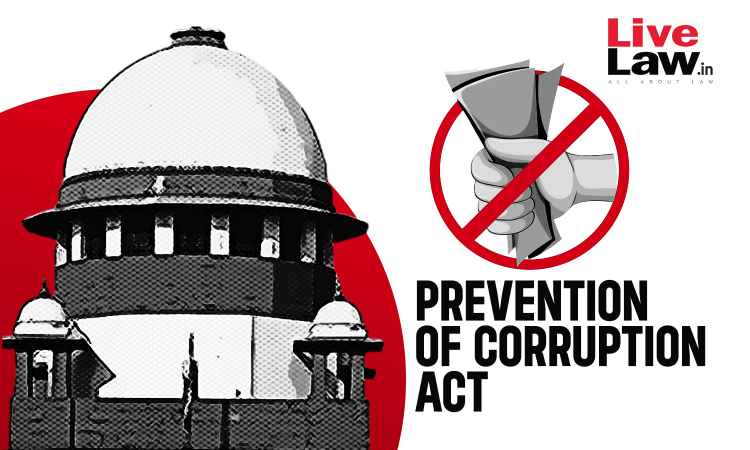While holding that stamp vendors qualify as ‘public servants’ for invoking the Prevention of Corruption Act proceedings against them, the Supreme Court clarified that mere recovery of tainted money is not sufficient to establish guilt under the Act unless the demand for such money is also proven.
The Court said that mere acceptance of illegal gratification without proof of offer by the bribe-giver and demand by the public servant would not make an offence under the PC Act.
“it may be safely concluded that mere possession and recovery of tainted currency notes from a public servant, in the absence of proof of demand, is not sufficient to establish an offence under Sections 7 and 13(1)(d) of the PC Act respectively. Consequently, without evidence of demand for illegal gratification, it cannot be said that the public servant used corrupt or illegal means, or abused his position, to obtain any valuable thing or pecuniary advantage in terms of Section 13(1)(d) of the PC Act.”, the bench comprising Justices JB Pardiwala and R Mahadevan said.
The bench was deciding an appeal against a Delhi High Court’s judgment, which affirmed the Trial Court’s judgment holding the appellant herein guilty of the offence under Sections 7 and 13(1)(d) read with Section 13(2) of the PC Act.
The allegation was that the appellant, a stamp vendor, made an excess demand of Rs 2 for a stamp paper valued at Rs 10. Based on a complaint filed by the purchaser, the Anti-Corruption Bureau initiated proceedings based on ‘trap’ evidence.
The central issue raised by the Appellant concerned his claim that he was not a ‘public servant’ and thus not subject to the provisions of the Prevention of Corruption Act. However, in a judgment authored by Justice Pardiwala, the Court held that a stamp vendor can indeed be prosecuted under the PC Act. At the same time, the Court noted that there was neither evidence of a demand for a bribe by the Appellant nor proof of any offer made by the alleged bribe-giver.
“The present case is not one of an “offer to pay by the bribe-giver” where, in the absence of any demand from the public servant, the mere acceptance of illegal gratification would constitute an offence under Section 7 of the PC Act. The expression “offer” indicates that there is a conveyance of an intention to give, which must be communicated and understood by the recipient, leading to meeting of minds. Consequently, the offer is accepted. For such an acceptance to constitute an offence under Section 7, there must be clear and cogent evidence establishing that the public servant was aware of the offer and accepted it voluntarily, knowing it to be illegal gratification. In other words, even where there is no express demand, the bribe-giver and the bribe-taker must be shown to have been ad idem as regards the factum of offer of bribe.”, the court observed.
In terms of the aforesaid, since the factum of demand and acceptance of a bribe was not established, the Court acquitted the Appellant for charges framed under the PC Act.
Also From Judgment: Stamp Vendors Are ‘Public Servants’ Under Prevention Of Corruption Act; Liable For Bribery Over Stamp Paper Sale : Supreme Court
Case : Aman Bhatia vs State (GNCT of Delhi)
Citation : 2025 LiveLaw (SC) 520





